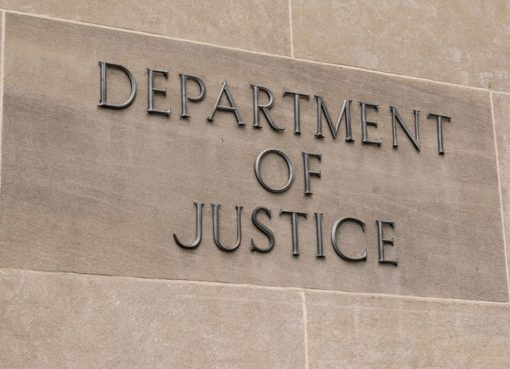The crypto regulatory situation in the U.S. is sad. Not because the Securities and Exchange Commission or Department of the Treasury keep proposing new, unpopular rules but because there is a lack of depth and insights into most of the positions and intended actions coming out of U.S. regulatory agencies.
What we have today is hastily concocted and coordinated decisions from various departments that have all been reactive and not proactive. Most of these end up delivering superficial, rushed, harmful, reactive or incomplete policies, not always aligned with helping the industry grow, but often obsessed with preserving the status quo.
William Mougayar, a CoinDesk columnist, is executive chairman at the Kin Foundation. This op-ed is part of CoinDesk’s Policy Week, a forum for discussing how regulators are reckoning with crypto (and vice versa).
Here’s how the mess is created, as each regulator takes a narrow issue and makes it their sole priority.
- The Department of the Treasury is mostly worried about crypto tax evasion.
- The Federal Reserve is scared about the impact of stablecoins.
- The SEC sees everything from a security/non-security vantage point.
- The Commodity Futures Trading Commission (CFTC) looks at these instruments as commodities. It has progressive ideas but those aren’t always in lockstep with the SEC.
- The Treasury Department’s Financial Crimes Enforcement Network (FinCEN) is generally focused on anti-money laundering.
- The Department of Justice is targeting know-your customer (KYC) and catching crooks who target crypto ransomware.
These regulators are acting based on what they see from where they sit. They all want to force-fit crypto into their own models as if there was nothing different here. In reality, no one has the full picture! And not one of the current regulators is displaying a genuine understanding of where the industry is headed.
Sadly, we are where we are because none of these existing regulatory bodies have exhibited a deep enough sophistication to get them to implement the right regulation.
They saw crypto as a distraction, not something to study. Now they’re cramming. And by that, I mean, cramming crypto into their current regulatory models – unable to admit that novel technology calls for novel solutions.
The U.S. Congress doesn’t do well passing laws in new areas when they have not been properly researched and crafted. Take the hastily inserted clauses targeting crypto in the bipartisan infrastructure bill or the initial attempt to limit stablecoin issuance rules. Both the House of Representatives and Senate have been on the receiving end of telegraphed policies or viewpoints, and not from a lack of trying. More than 18 bills have been put forth in 2021 by the Congress, each one claiming to be more comprehensive than the next.
Enough of that.
We don’t need 18 bills and six departments fumbling their way into crypto regulation. How about one single entity with a full-time responsibility for this agenda, not half a dozen others with part-time dedication and short-term attention?
The only way to be innovative is to have an expert regulator drive new regulations across the several other mosaics of regulators. The only hope for birthing the right type of regulation is to have someone who is fully dedicated to crypto.
For example, this could start in the form of a special-purpose task force commissioned by the White House, or by creating a temporary agency that could obsolete itself after two to three years of strategy, planning, coordination and thought leadership work in the field of crypto regulation.
The job would involve making the other existing agencies more coordinated, knowledgeable and careful about what they propose. And it would have a holistic approach that takes into account the full spectrum of how cryptocurrency and the blockchain are impacting the U.S. market.
The field of crypto is full of minutia, details and nuances that only a dedicated entity will discern. In the corporate world, it is common practice to create a dedicated team of people when a new field emerges. There is a need to create real experts who can spread their wisdom into other parts of the organization, rather than having disparate groups struggle on their own to master a topic when it has not been on their full-time radar.
The U.S. regulatory landscape is already specialized, but that’s after years of regulatory experience and maturity. Now, if U.S. regulatory entities took it upon themselves to deal with the parts that touched them, crypto would die by a thousand cuts. They will mix the good with the bad, and they will throw the baby out with the bathwater more than once.
We are already seeing this lack of good chemistry exhibit itself as regulatory agencies and government departments continue to produce un-coordinated, piecemeal approaches, while Congress receives bill after bill and struggles to make sense out of them. Regulatory fatigue is setting in.
In contrast, take Switzerland or Singapore. Because they are smaller jurisdictions, they can more accurately wrap their heads around their target areas. In the U.S., there is no single entity that can be the driving locomotive for all other regulators, even if the SEC is believed to be that one.
See also: Coinbase Proposes US Create New Regulator to Oversee Crypto
In an ideal world, innovation precedes regulation. Initially, innovation is allowed to circumvent or avoid regulatory scrutiny. Then, regulation comes in to provide clarity, formalize rules or provide specific guidance that allows many parts of the technology to thrive. The internet was allowed to flourish during the mid-1990s when U.S. policy was driven by a strong White House special adviser, Ira Magaziner, who acted as the internet and e-commerce czar and dictated policy strategy after he deeply studied the topic. As a result, the U.S. became the undisputed early leader in this field.
In contrast, currently U.S. regulators are coming to crypto with the aim to dial back on the innovation and not to set it on the right track. Ultimately, it’s the entrepreneurs who create all the value, and they should be the ones to empower in order to secure U.S. global leadership in this sector. Otherwise, the innovation drain and non-U.S. based activities will continue to grow elsewhere. Not only does this hurt entrepreneurship, but it also prevents millions of consumers from benefiting from wealth creation opportunities around cryptocurrencies.
Will history repeat itself? Will Americans do the right thing after they have exhausted every other possibility? Now is the time to break the existing pattern of crypto regulation by Whack-a-Mole. Now is the time to jump into a new paradigm of holistic, expert and more-sensical regulation.




